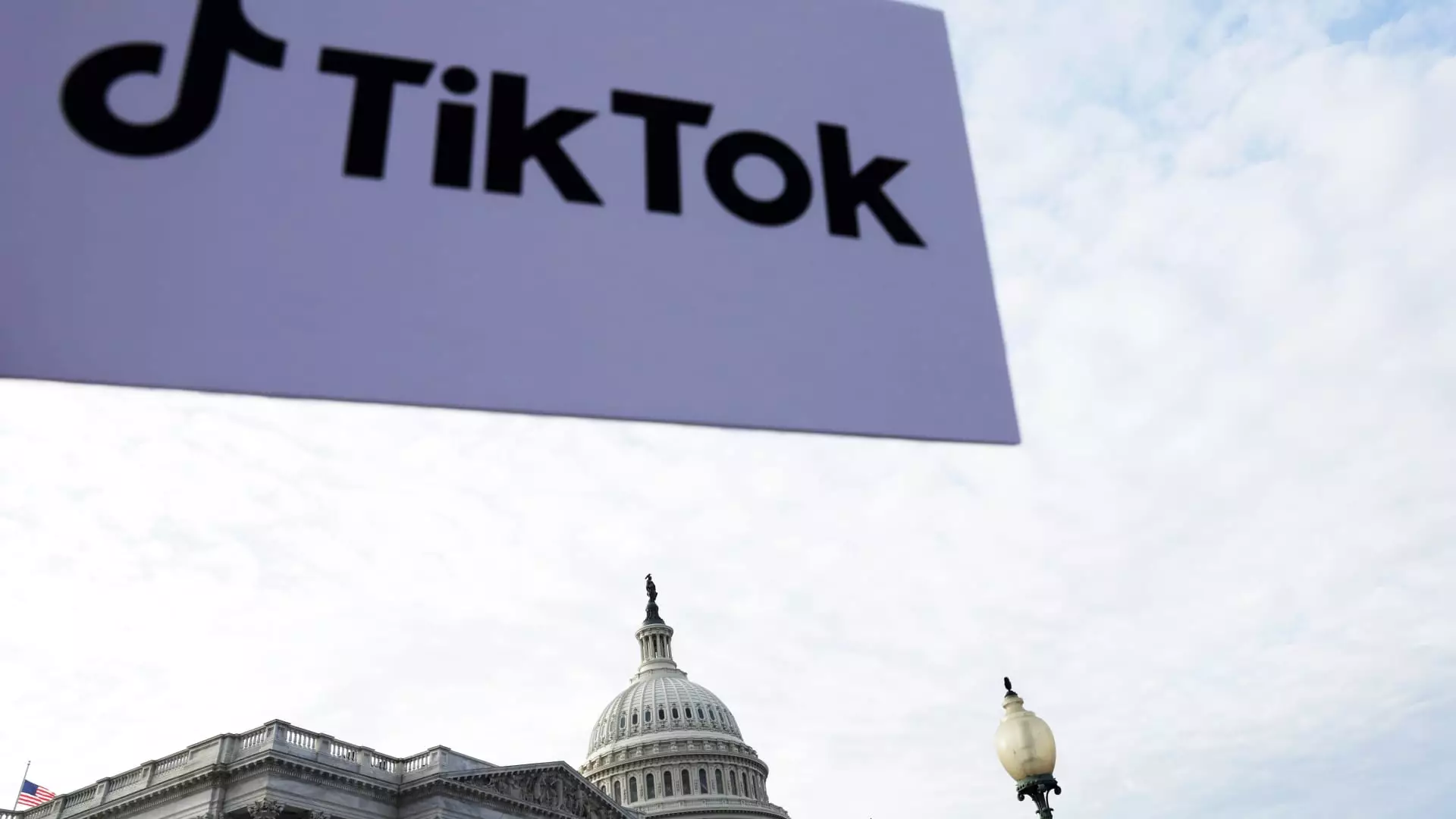The ongoing saga surrounding the fate of TikTok in the United States has taken yet another turn as key congressional figures intensify pressure on the app’s parent company, ByteDance, and the tech giants Apple and Google. At the core of this discourse is a recently upheld law by the U.S. Court of Appeals, which mandates that ByteDance divest TikTok by January 19, 2024. Should the company fail to comply with this directive, Apple and Google will face legal obligations to withdraw TikTok from their app stores, a move that could effectively ban the social media platform from U.S. soil.
Representatives John Moolenaar and Raja Krishnamoorthi, members of the Select Committee on the Chinese Communist Party, articulated their concerns through correspondence directed at Tim Cook and Sundar Pichai. This communication serves not only as a reminder of the responsibilities accompanying their roles as app store operators but also as an indication of the underlying national security concerns that motivate this legislative action. The lawmakers emphasized that the implications of continued TikTok availability hinge upon the company’s adherence to the divestiture law, which aims to eliminate perceived threats posed by foreign adversaries.
The legal framework in question, bolstered by a bipartisan agreement, categorically demands that services related to the app be terminated if ByteDance fails to divest. The consequences of ignoring this mandate are significant, as the law classifies any maintenance or updates to the application as unlawful. Such a position exemplifies the heightened vigilance of U.S. lawmakers regarding cybersecurity and data privacy in a landscape increasingly fraught with tensions between the U.S. and China.
TikTok’s leadership has not remained silent; CEO Shou Zi Chew has publicly decried the recent legislative developments as unconstitutional, asserting that the actions taken by Congress infringe upon the First Amendment rights of the app’s substantial user base—estimated at around 170 million in the U.S. TikTok’s argument hinges on the assertion that the law restricts free expression and punishes users through no fault of their own. Nevertheless, the appellate court has maintained its position, suggesting that the law is meticulously crafted to prioritize national security without unnecessarily infringing on individual freedoms.
The stakes associated with a potential ban extend beyond the platform itself. TikTok’s forecasts indicate that U.S. small businesses and content creators could face dramatic financial losses nearing $1.3 billion should the app be removed from app stores for even a short period. This predicament elucidates the broader economic impact of digital platform regulations on the livelihoods of millions who rely on social media for income and outreach.
Amid this legislative tug-of-war, the role of the incoming President Donald Trump becomes critically important. Trump has yet to confirm whether he will press forward with the ban upon his inauguration on January 20, 2024. His previous administration’s efforts to curb TikTok’s influence were met with resistance and legal challenges, yet recent reports indicate a possible shift in his stance following personal engagements with influential investors in the app.
Reports suggest that billionaire Republican donor Jeff Yass holds substantial stakes in ByteDance, linking financial interests to potential political motivations. Yass’s involvement raises questions about the relationships that intertwine business, politics, and national security. As Trump contemplates his approach to TikTok, the interplay of these dynamics will shape the trajectory of both his presidency and the future of this popular platform in the United States.
As we approach a pivotal date for TikTok, the tensions between national security, economic impact, and personal freedoms will unfold dramatically. Lawmakers’ push for compliance underscores an unwavering commitment to protecting U.S. interests, while TikTok aims to safeguard its foothold by appealing to constitutional rights. With powerful stakeholders involved and uncertain political waters ahead, the fate of TikTok is emblematic of broader issues reflecting the complex interplay of technology, governance, and society in a rapidly evolving digital landscape.

